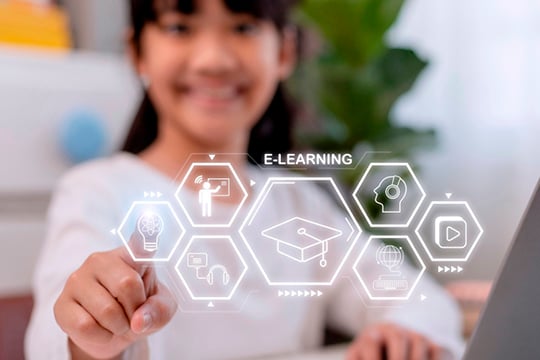Children in the digital forest - pioneers or lost?
You hear a lot about Generation Alpha these days; they're the generation that started in the early 2010s and whose oldest members will be entering their early teen years in the upcoming years. Every article, website, and interview about them mentions how Alphas are the first generation that's surrounded from birth by modern digital technology, and utilizes global information and social networks. We also keep hearing that these children spend more time with their gadgets and online than earlier generations, and that the Internet will consequently affect their lives more. There is, however, a question we rarely hear: how exactly is Generation Alpha spending all that Internet time?
It's convenient and comforting to just assume that if they spend so much time on digital devices and online platforms, they must be good at it. But doubtful voices are getting stronger: a lot of use is not the same as mature, smart and safe use.

A 2018 study, performed in 12 countries with 46,561 eighth grade children showed troubling results. The study classified computer and information literacy on a four-grade scale. In order to reach the highest grade, children had to be able to evaluate and judge information they've gathered. Only 2% of the study's participants succeeded at this. 19% reached the second highest grade, where they needed to collect and manage information independently.
Another study, published in 2021, concluded that even if the majority of children know how to use various digital gadgets and platforms, they still won't be able to learn how to use them well on their own. For example, a child might be able to make and share videos on TikTok easily, but this won't translate into researching information for their homework in a directed manner, separating the useful information from the useless. They also might be able to turn off the parental lock on their smartphones in a jiffy, but that won't help them recognize and emotionally handle online harassment if and when they encounter it.
The children of today face two fundamental problems in the digital world. One, is technical knowledge: it doesn't matter how much you use your gadget at a beginner level, it won't automatically make you better at other uses of technology. The other, is the mature, responsible and critical use of information, technology and social groups, which helps you avoid both untrustworthy information and harmful online social environments.
More and more countries start to recognize that it's not enough to leave Alphas to their own devices (pun intended); you also need to carefully guide their growth into the digital world. There are numerous good school initiatives worldwide, all aimed at developing children's digital literacy skills. These institutions, however, often fall behind the complex challenges of this rapidly moving area of study. The solution lies with schools that specifically teach these proficiencies.
Digital literacy and technological proficiency are the basic requirements of the future, and we're only starting to realize now that they're missing from the youngest generation, the one we assumed to be most competent, but which is also the most vulnerable. This is why we here at Logiscool consider it important to let kids prepare for digital life purposefully, with professional guidance. They can master the knowledge of the future playfully and efficiently in our small groups, following the modern curriculum compiled by our professionals, from safe Internet use through video production to programming and robotics.
You can find more information on our courses, camps and workshops here: https://www.logiscool.com/en-sk.


